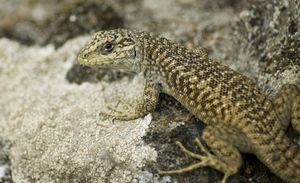Efforts to conserve global biodiversity are gaining momentum, with various organizations and communities stepping up to save endangered species and their habitats. Recent highlights from around the world showcase these efforts, underscoring the urgency of maintaining the planet's biological wealth.
With the Covid-19 pandemic affecting wildlife conservation initiatives, the Pangolin Conservation Working Group of Nigeria (PCWGN) has emerged as a beacon of hope. Founded in February 2016, the NGO has successfully rescued approximately 100 pangolins, like Ivy, who were captured for illegal sale at bushmeat markets. Oladipo Omotosho, spokesperson for the organization, explains how many of these captured animals faced dire fates involving illegal trade linked to traditional Chinese medicine, stressing the impact of poverty within communities where these animals are often poached.
Despite pangolin scales being removed from authorized medicinal ingredients lists by Chinese authorities, the black market continues to thrive. Poverty compounded by existing demand presents significant challenges for conservationists like Omotosho, who is committed to raising awareness and promoting wildlife conservation as part of community efforts to curb poaching.
The PCWGN engages local hunters, bushmeat sellers, and even former poachers, offering incentives to discourage illegal hunting. After rescuing pangolins, the organization conducts health assessments and rehabilitates the animals before releasing them back to protected habitats. Professor Olajumoke Morenikeji, chair of the PCWGN, emphasizes the ecological role of pangolins, highlighting their contributions to soil health and insect population control.
Despite international protections such as the Convention on International Trade in Endangered Species of Wild Fauna and Flora (CITES), which banned pangolin trading, Nigeria continues to grapple with illegal trafficking. Recent initiatives by the Nigeria Customs Service resulted in significant seizures of pangolin scales valued up to $1.4 million, showcasing the nation's determination to combat wildlife crime.
Concurrent to these efforts are the global observances of World Wetlands Day, celebrated to highlight the importance of wetlands for biodiversity and human livelihoods. Wetlands serve as fundamental ecosystems, sustaining wild bird populations and providing clean water for millions. Unfortunately, these areas are disappearing at alarming rates—three times faster than forests—placing countless species under threat.
Wetlands are sacred spaces for birds, serving as nesting sites and stopovers during migration. Loss of these habitats can lead to dramatic declines in bird populations, indicating broader environmental failures. Across Africa, wetlands such as the Okavango Delta face mounting pressures from climate change, agriculture, and development.
Chia Lagoon, the largest lagoon in Malawi, shelters diverse bird species and supports over 7,857 households. A collaborative effort between the Wildlife and Environmental Society of Malawi and the MicroLoan Foundation seeks to restore this wetland. This project has planted over 6,000 tree seedlings and trained hunters to pivot from hunting to conservation-focused activities.
Prisca Banda, a local entrepreneur, has benefited from microloans aimed at enhancing her business ventures, showcasing how economic initiatives align with conservation efforts. Given the economic pressures facing communities, sustainable livelihoods are key to fostering environmental stewardship.
Europe is also witnessing renewed interest in wetland restoration. BirdLife Slovakia has spearheaded efforts to revitalize Hal’s Marsh, restoring the ecologically important site through strategic flooding and purchases aimed at safeguarding its future. These successful restoration efforts have attracted numerous bird species back to the area, signaling hope for wetland ecosystems.
Sadly, Iraq’s Marshlands, once the largest wetland system in the Middle East, have drastically shrunk, leading to the loss of numerous migratory bird species. With substantial portions of the marshlands lost to climate change and poor water management, the ecosystem faces immense pressures with multiple species now threatened with extinction.
The upcoming Ramsar Wetlands COP15 will be pivotal for mobilizing global wetland conservation strategies, focusing on innovative collaborations and sustainable funding. The urgent need to act to protect these ecosystems and the wildlife they support continues to resonate within the global conservation community as exemplified by these initiatives to promote biodiversity.
Through the combined efforts of organizations like the PCWGN and community initiatives focusing on wetlands, the message remains clear: protecting biodiversity is not only about saving individual species but preserving the very foundations of our environment. It is imperative for us to acknowledge the interconnectedness of all Earth's inhabitants and the ecosystems we share, emphasizing our collective responsibility toward safeguarding the future of our planet.



